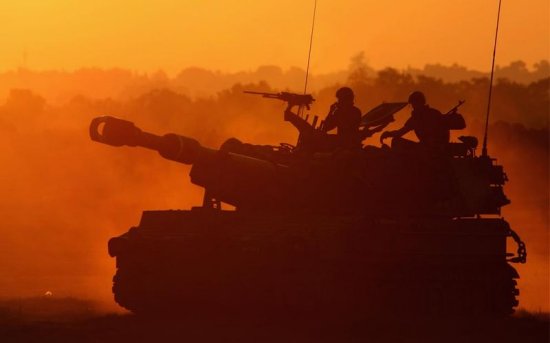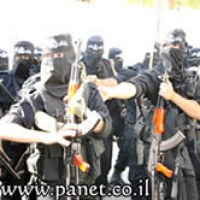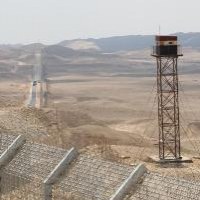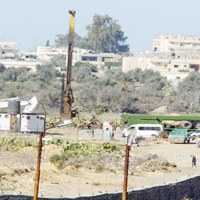Prof. Asa Kasher analyzes the moral issues in the Gaza War. Published: February 4, 2010; A moral evaluation of the Gaza War – Operation Cast Lead (Jerusalem Center for Public Affairs).
by Asa Kasher
In Israel, a combatant is a citizen in uniform; quite often, he is a conscript or on reserve duty. His state ought to have a compelling reason for jeopardizing his life. The fact that persons involved in terrorism are depicted as non-combatants and that they reside and act in the vicinity of persons not involved in terrorism is not a reason for jeopardizing the combatant’s life more than is required under combat conditions.
The ethical doctrine which follows from the IDF Ethics Code mandates that, whenever possible, you must warn non-combatants that they are residents of a neighborhood where it is dangerous to stay. In Gaza, the IDF employed a variety of unprecedented efforts meant to minimize injury to non-combatants, including warning leaflets, phone calls, and non-lethal warning fire.
There is no army in the world that will endanger its soldiers in order to avoid hitting the warned neighbors of an enemy or terrorist. Israel should favor the lives of its own soldiers over the lives of the well-warned neighbors of a terrorist when it is operating in a territory that it does not effectively control, because in such territories it does not bear the moral responsibility for properly separating between dangerous individuals and harmless ones.
Proportionality is not a numerical comparison, but an assessment of existing threats and the measures that must be taken in order to avert them. Proportionality is justifiability of the collateral damage on grounds of the military advantage gained.
Compare the Gaza operation to the U.S. Marine operation in Fallujah, Iraq, in late 2004. During the operation, about 6,000 Iraqis including 1,200-2,000 insurgents were killed. Of the city’s 50,000 buildings, some 10,000 were destroyed, including 60 mosques. Thus, the U.S. left a trail of destruction in Fallujah far greater than anything Israel inflicted on Gaza. Comparing IDF activities to those of military forces of Western democracies is an essential part of any present attempt to use international law.
We in Israel are in a key position in the development of customary international law in this field because we are on the front lines in the fight against terrorism. The more often Western states apply principles that originated in Israel to their own non-traditional conflicts in places like Afghanistan and Iraq, then the greater the chance these principles have of becoming a valuable part of international law.
The “Just War Tradition”
On December 27, 2008, after sustaining eight years of rocket attacks, Israel launched a military operation against Hamas in Gaza. How are we to evaluate the Israeli incursion from a moral and ethical perspective?
As in any moral evaluation of a war, we must begin by distinguishing the “Why?” from the “How?” “Just war” theory distinguishes between jus ad bellum and jus in bello – between the moral justification for war and the moral justification for actions taken during a war. The decision to wage a war or to embark on a military operation is made by a government, by politicians. The implementation of that decision in the field, however, or the “How?” is determined by the military echelon. Generally speaking, a government is not to blame for the behavior of soldiers, and soldiers should not be blamed for the decisions made by the political class.
To ask “Why?” is to invoke several principles that belong to the “just war tradition.” The first is the right of self-defense. From an external point of view, from the perspective of the relationships between states, a state has the right to defend itself against attack. From the internal point of view, namely from the perspective of the relationship between a state and its citizens, a government has the duty to defend its citizens. A state must protect its citizens from acts of violence because it must preserve the conditions that enable it to exist; foremost among them is the preservation of the lives of its citizens. A democratic state is therefore under an obligation to defend its citizens’ lives. Thus the state has a right vis-à-vis the enemy and a duty vis-à-vis its citizens. This is the distinction between a state’s right of self-defense, which relates to what is beyond its confines, and a state’s obligation of self-defense, which relates to what is within its confines. Both are applicable in our case, since beginning in 2001 over ten thousand Kassam rockets and mortars were launched from Gaza into Israel, endangering the lives of the citizens under attack.
Second is the principle of last resort, which dictates that if a dispute can be solved without resort to military force and inflicting casualties, then the parties are obligated to do so. The use of military force is justified, in other words, only if all other alternatives have been exhausted. Here, too, Israel is presumably in the right, for rather than launching an offensive immediately after the first Kassam rocket struck Sderot, the country waited eight years, during which it pursued other solutions, both military and political. Israel’s long abstention from any large-scale military response in the face of this aggression presumably meets the principle of last resort.
Third, the probability of victory principle dictates that a military operation may be launched only if it has a reasonable chance of successfully achieving its aims. Such operations may not be initiated merely as a symbolic gesture of bravery. If there is no chance of victory, the use of military force is mere bloodshed. Yet here we must distinguish between classical wars like World War II and the Six-Day War in which victory meant the elimination of a military threat, and asymmetric counterterrorism or counterinsurgency warfare against a non-state entity, like the type Israel faces against the terrorist militias of Hizbullah and Hamas (see also the Hamas Charter). In the latter, victory means significantly improving the security situation in the southern part of Israel by damaging the enemy’s armaments infrastructure and crippling its ability to carry out terrorist activities. Here again, last year’s incursion into Gaza met the pertinent condition.
The Moral Standards of the Israel Defense Forces
In inquiring into the moral standards of a military force – which is not the same as addressing the standards of an individual – three independent questions come to the fore. One concerns the basic values on which the military force acts and the code of ethics according to which it behaves. A second level concerns the translation of such values into practice by means of doctrines, regulations, and rules of engagement. Values are abstract, doctrines are more concrete, while rules of engagement are quite concrete. Finally, there is the question that relates to the behavior of the troops on the battlefield.
As specified in a document called “The Spirit of the IDF,” the values of the Israel Defense Forces, much like the values of the American and British forces, are impeccable. For example, there is the basic value of protecting the human dignity of every human being, even the most vile terrorist. How do we protect the human dignity of a terrorist? By considering whether to kill him or capture him or leave him alone.
An additional, uniquely Israeli value is that of the sanctity of human life, both of our troops, our citizens, and other human beings. It appears in an explicit form in no other military code of ethics.
The military code also enshrines a fundamental value known as “purity of arms,” which actually means the purity of the usage of arms. Soldiers may use force only for accomplishing their mission, and nothing more. Anything you do with your gun which is not defending the citizens by accomplishing your specific mission is deemed immoral.
In my view, no military code of ethics is morally superior to the code of ethics of the IDF.
A View of International Law
We turn now to that part of international law that concerns warfare. This was elaborated in the seventeenth century by the Dutch legal theorist Hugo Grotius on the foundations of a very long philosophical and theological tradition – the “just war tradition.” Later it took the form of the Hague Conventions and the Geneva Conventions.
Strictly speaking, international law does not apply to the situation Israel faced in Gaza. Its provisions were intended to guide a military conflict between armies with clear chains of command in which all the troops wear uniforms, bear arms openly, and are responsible to the civil government of a certain state. Terrorist militias like Hamas, however, are not guided by a state. Hamas acts from a territory which is a political entity, the Palestinian Authority, but which is not a state. Moreover, Palestinian terrorists, deliberately and constantly, blur the distinction between combatants and non-combatants, both among the Palestinian population and among the Israelis they target. The classical assumption of mutual observance of the norms of warfare never holds in the war on terrorism.
How then can international law meant for classical warfare apply to nontraditional wars? One way is by means of creative interpretations of international law. The problems with such an approach, however, are immediately apparent. Whose interpretation prevails? The interpretation of the Supreme Court of Israel? The U.S. Supreme Court? The Marine Corps’ Judge Advocate Division? Somebody within the United Nations?
An Ethical Doctrine for Combating Terrorists
Israel should take a different approach, for it is interested in extending international law rather than replacing present provisions by other ones. Extending international law entails creating new principles in the spirit of the “just war tradition” by attending to fundamental principles, and not merely reinterpreting a certain clause in a certain convention. As it happens, Major General Amos Yadlin and I, as a first step in such a direction, put forward a document that offers an ethical doctrine for combating terrorists. This document was published in the Journal of Military Ethics in 2005. Here are some elements of it.
Usually, the duty to minimize casualties among combatants during combat is last on the list of priorities. We firmly reject such a conception. In Israel, a combatant is a citizen in uniform; quite often, he is a conscript or on reserve duty. His state ought to have a compelling reason for jeopardizing his life. The fact that persons involved in terrorism are depicted as non-combatants and that they reside and act in the vicinity of persons not involved in terrorism is not a reason for jeopardizing the combatant’s life more than is required under combat conditions.
What we need instead of the crude and now impractical distinction familiar from the case of regular wars is a scale of involvement in terrorist activity: There are people who are directly involved, those who are indirectly involved, and those who are not involved at all. The second two categories may never be targeted. An operation may only target those who are directly involved, i.e., only if they play a significant role in creating an otherwise unavoidable danger.
So our doctrine allows targeted killing when it is necessary to stop a certain operation against the citizens of Israel and when the role played by the target is crucial to the operation. This is not a form of punishment. The only body that can impose punishment is the court. This is meant only to stop an ongoing act of terrorism. Nor is such killing a form of deterrence. Killing for the sake of deterrence is something akin to terrorism. According to our doctrine, it is impermissible to kill for deterrent purposes alone. Israel killed Hamas leaders Sheik Ahmed Yassin and Abdel Aziz Rantisi, for instance, not to achieve a deterrent effect, but because they posed a significant threat to Israeli lives. Deterrence has been an ensuing byproduct.
Our doctrine also draws a distinction between three different standards of conduct to guide a soldier in any military action: (a) a standard he should follow when facing a group comprising enemy combatants and no one else; (b) a standard he should follow when facing a group of enemy non-combatants who are not participating in the fighting and are not in proximity to enemy combatants; and (c) a standard he should follow when facing a mixed group of combatants and non-combatants.
The Gaza operation mostly took place under conditions that required the application of the third standard of conduct. In the third situation, “just war tradition” theory posits the “double effect” principle. According to this principle, when we are seeking a goal that is morally justified in and of itself, then it is also morally justified to achieve it, even if this may lead to undesirable consequences – on the condition that the undesirable consequences are unavoidable and unintentional, and that an effort was made to minimize their negative effects.
The Need to Warn Non-combatants
Our doctrine mandates that whenever possible, you must warn non-combatants that they are residents of a neighborhood where it is dangerous to stay. The responsibility for minimizing injury to non-combatants entails the responsibility to separate them from terrorists and to remove them from the area of combat. In Gaza, the IDF employed a variety of effective efforts meant to minimize collateral damage, including widely distributed warning leaflets, more than 150,000 warning phone calls to terrorists’ neighbors, and non-lethal warning fire (the so-called “knock on the roof”) – unprecedented efforts in every respect.
Writing in the New York Review of Books, Avishai Margalit and Michael Walzer attacked our doctrine on the grounds that such warnings are not enough. “In such cases,” they wrote, “some civilians never leave, despite repeated warnings – because they are old and sick, or because they are caring for relatives who are old and sick, or because they are afraid that their homes will be looted, or because they have no place to go.”
Now under such circumstances, should Israel send in troops in order to find out whether there are non-combatants in addition to the terrorists or not? Our doctrine says Israel was not required to send in troops because the mixture of terrorists and non-combatants is a mixture not under our moral responsibility in a territory over which we do not have effective control, as in Gaza. In a state of effective control, the responsibility for distinguishing between terrorists and non-combatants is placed upon Israel’s shoulders. We do have effective control over Tel Aviv, Jerusalem, the Golan Heights, and many other places, so there we do jeopardize the lives of police when necessary to prevent criminal acts without harming the neighbors. That is their duty.
But there is no army in the world that will endanger its soldiers in order to avoid hitting the well-warned neighbors of an enemy or terrorist. When Israel does not have effective control over a territory, the moral responsibility for distinguishing between terrorists and non-combatants is not placed upon its shoulders. Gaza was not under our effective control. Therefore, one does not have to jeopardize the lives of the troops in such circumstances just for that sake. If you look at non-combatants in a territory where one does not have effective control and have already made a series of warnings that are known to have been effective, then the lives of the troops come first.
In sum, Israel should favor the lives of its own soldiers over the lives of the well-warned neighbors of a terrorist when it is operating in a territory that it does not effectively control, because in such territories it does not bear moral responsibility for properly separating between dangerous individuals and harmless ones, beyond warning them in an effective way. The sick can wave white flags, their relatives can do it too. The person who is afraid his home would be looted does not create by his odd behavior a reason for jeopardizing soldiers’ lives. The person who does not know where to go is a myth.
Understanding Proportionality
A word about proportionality. Many critics of the Gaza operation charged that, since very few people were killed by rocket attacks on Israel’s population, while many people were killed by the Israeli response, this response was disproportionate and, therefore, contrary to international law. However, the way the term “proportionality” has been employed in public discourse is usually wrong. First, the number of Israeli casualties is not a reliable measure of the threat posed by enemy rockets. A Grad rocket hit a Beersheba classroom on December 31, 2008; had the missile hit the school when classes were in session, dozens of schoolchildren would have been killed. Luck does not diminish the threat posed by an attack. Proportionality is not a numerical comparison, but an assessment of justifiability of the collateral damage made by the military advantage gained.
An example: At the beginning of the Gaza campaign, a police headquarters was hit because so-called policemen were part of the Hamas security forces and some of them were suicide bombers and others were firing rockets. They were not innocent people involved in traffic control. They were part of a Hamas security force that acted like a reserve unit, and during military warfare you are permitted to hit reserve units that are going to enter the battlefield. The portrayal of those people as if they were all innocent policemen is misleading. Even if some of them were innocent, their attack was utterly justified by the military advantage gained by attacking them. (We assume that warning these innocent individuals would have been futile.)
Were some soldiers trigger-happy in Gaza? Perhaps. But was there a policy of trigger-happiness? On the basis of two kinds of indirect evidence, we can say that there was not. First, if there had been a policy of trigger-happiness, there would have been many thousands of Palestinian casualties. Second, if there had been a policy of trigger-happiness, then the distribution of men, women, and children among the casualties would have closely resembled their distribution in the population. But that is not the case. The vast majority of casualties in Gaza were men; women and children comprised about a sixth of the casualties.
Comparing Israel’s Conduct in Gaza to U.S. Conduct in Iraq
Compare the Gaza operation to Operation Phantom Fury, which the U.S. Marines launched in Fallujah, Iraq, in late 2004. Many of Fallujah’s 350,000 residents fled the city before the operation, leaving an estimated 3,000 insurgents behind. During the operation, about 6,000 Iraqis including 1,200-2,000 insurgents were killed. Of the city’s 50,000 buildings, some 10,000 were destroyed, including 60 mosques, each of which was used to store substantial quantities of armaments and munitions. Even according to Palestinian figures, which are unreliable, 1,400 Palestinians were killed in the Gaza operation. Thus, the United States left a trail of destruction in Fallujah that was far greater than anything Israel inflicted on Gaza. So there is no basis to claim that Israeli conduct of anti-terrorist warfare is less restrained than that of other enlightened states.
We compare Operation Phantom Fury and Operation Cast Lead not in order to use the results for casting a shadow on the former or praising the latter. We compare the operations because the way democratic states conduct their military activities is what should interest us, rather than some creative and often hostile interpretation of the conventions, as a step towards instituting customary international law.
Customary international law accrues through an historic process. If states are involved in a certain type of military activity against other states, militias, and the like, and if all of them act quite similarly to each other, then there is a chance that it will become customary international law. We in Israel are in a key position in the development of law in this field because we are on the front lines in the fight against terrorism. I am not optimistic enough to assume that the world will soon acknowledge Israel’s lead in developing customary international law. My hope is that our doctrine, give or take some amendments, will in this fashion be incorporated into customary international law in order to regulate warfare and limit its calamities.
Investigations
When claims are made with respect to IDF conduct during the Gaza operation, no matter by whom, the IDF should investigate them, even if they appear to be fabricated. A commander may not ignore allegations about his troops; this is required professionally, ethically, and morally.
The IDF is a serious organization, interested in improving its activity on all levels – professional, military, legal, moral, and ethical. All military actions carried out during the Gaza operation should undergo a professional, thorough, and detailed investigation, just like any other non-routine and complicated professional operation. The IDF has an obligation to investigate itself just as any other professional organization would. This standard applies to a physician after an operation, an engineer after completing a bridge, and a commander after military activities. If some troops are suspected of breaching the law, then let the military police investigate. Indeed, there are significantly many ongoing investigations. Nothing more is required.
About the author:
Prof. Asa Kasher is the Laura Schwarz-Kipp Professor Emeritus of Professional Ethics and Philosophy of Practice and Professor Emeritus of Philosophy at Tel Aviv University in Israel. He is co-author of the Israel Defense Forces Code of Ethics, “The Spirit of the IDF: Values and Basic Principles,” 1994. His research covers a broad range of topics in philosophy and ethics, including military ethics and medical ethics, and philosophy of language, as well as issues of Jewish identity. In 2000, Professor Kasher was awarded the Israel Prize for his work in philosophy and ethics. This Jerusalem Issue Brief is based on his presentation to the Institute for Contemporary Affairs in Jerusalem on November 26, 2009. The article was written in conjunction with the Global Law Forum sponsored by the Legacy Heritage Fund.
Mazzeltov,
Crethi Plethi



 RSS
RSS











The #Ethics of the #IDF #israel #gaza http://j.mp/9SHpR7
RT @CrethiPlethi: The #Ethics of the #IDF #israel #gaza http://j.mp/9SHpR7
RT @CrethiPlethi: The #Ethics of the #IDF #israel #gaza http://j.mp/9SHpR7
[…] Weekly E-zine, go to http://Jim-Rohn.InspiresYOU.comRelated blog postsFacing the Enemies WithinA Moral Evaluation of the Gaza WarLOATAY.COM – Errant rocket shakes Afghanistan missionJan Myrdal Interviews CPI(Maoist) Leader […]